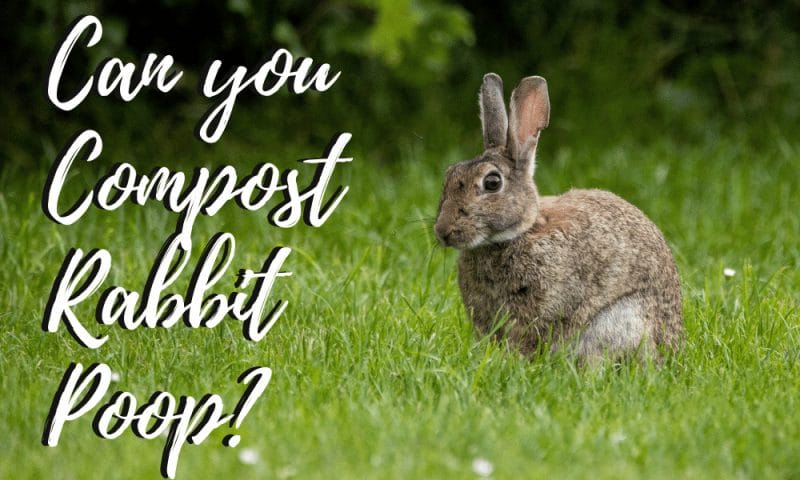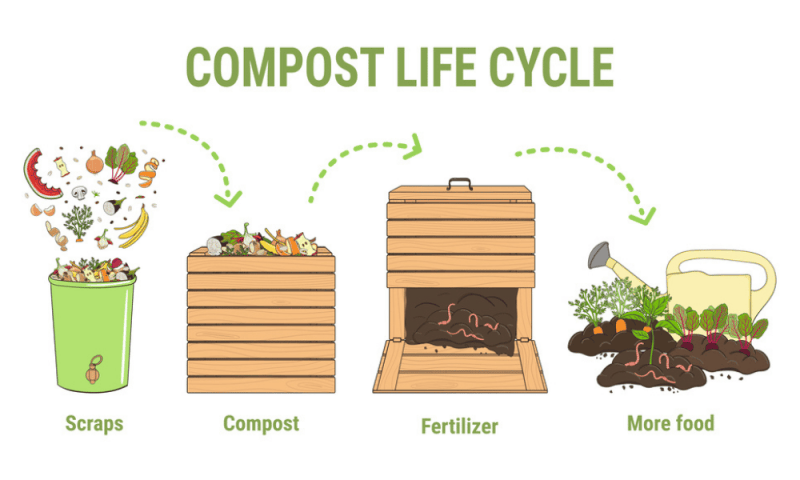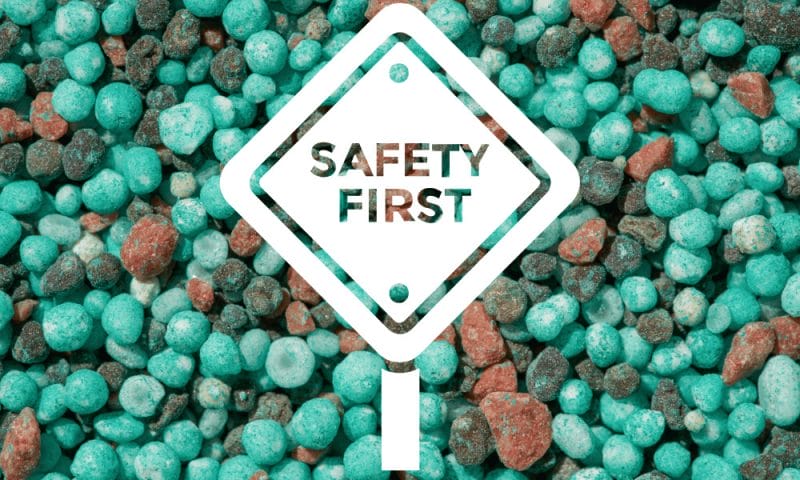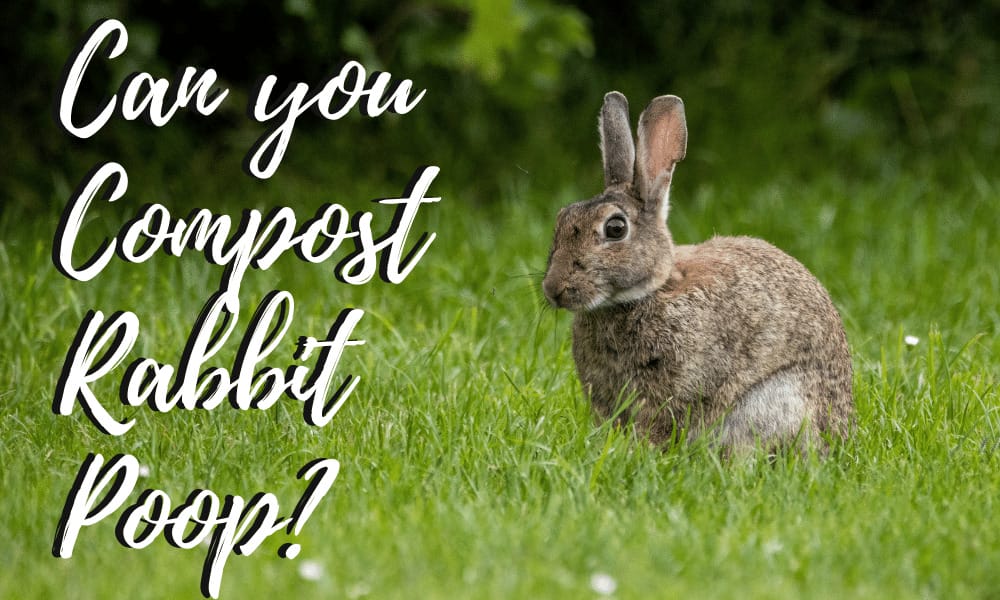
Have you ever wondered if you could compost rabbit poop? If you're a gardener or someone who cares about the environment, you might be curious about the potential benefits of composting rabbit waste.
Yes, you can. Composting rabbit waste is a simple and effective way to recycle the waste your furry friends produce. It reduces waste and odors and creates a valuable soil amendment that can improve the health and productivity of your garden.
Composting is a great way to reduce waste and improve the health of your garden soil. Composting involves breaking down organic material into a rich soil amendment called compost. The process is fueled by microorganisms that decompose the organic material and convert it into a nutrient-rich soil amendment.
This article will explore the benefits of composting rabbit waste and how it can be used as a natural and effective fertilizer for your garden.
Table of Contents
Is Rabbit Poop Good for Compost? — Benefits of Composting Rabbit Poop
Composting rabbit poop can provide many benefits to your garden. In fact, according to a study conducted by Michigan State University, rabbit manure has higher levels of nitrogen, phosphorus, and potassium than other types of manure, making it a nutrient-rich fertilizer for plants.
When composted, rabbit poop can improve soil structure and water-holding capacity, promoting healthy plant growth.
Compared to other types of animal manure, such as horse, chicken, or cow, rabbit poop has a higher nitrogen content and is in pellet form, which makes it easier to handle and spread.
Additionally, rabbit poop is considered cold manure, which means it can be added directly to the garden without the risk of burning plants due to excessive heat. This is a huge timesaver and a pro tip.
Regarding nutrient content, rabbit poop is similar to chicken manure but contains less phosphorus and more nitrogen. The texture of rabbit poop is also different from other manures, as it is in the form of small pellets that break down quickly in the compost pile.
This means that rabbit poop can be added to a compost bin or heap with minimal effort and will break down faster than other types of animal manure.
Adding rabbit poop to your compost pile or bin can greatly improve the quality of your compost.
Rabbit poop is a great source of essential nutrients for plants, including nitrogen, phosphorus, and potassium. These nutrients are essential for plant growth and can help improve your garden plants' overall health and yield.
Rabbit poop can also improve soil structure by adding organic matter to the soil. Organic matter helps to improve soil structure by increasing the soil's ability to hold water, improving soil aeration, and promoting the growth of beneficial microorganisms.
Rabbit owners and farmers can benefit from composting rabbit poop by incorporating it into their composting process. These benefits can help plants grow deeper roots, promoting healthier plant growth and better nutrient uptake.
How to Compost Rabbit Poop — Step-by-Step

Composting rabbit poop is a straightforward process that can be easily done at home.
Here are the steps to composting rabbit poop:
1. Prepare the Rabbit Poop
Rabbit poop can be added directly to a compost pile or bin, but it's best to break it up into smaller pieces before adding it. This can be done by crushing the pellets or using a shovel to break them up.
2. Create a Compost Pile or Bin
To create a compost pile, choose a location in your yard that is out of the way but easily accessible. A compost bin can also be used to contain the compost pile and help it retain heat and moisture. Compost bins can be made from various materials, such as wood pallets, wire mesh, or plastic bins.
3. Add Organic Matter to the Compost Pile
Along with rabbit poop, organic matter such as wood shavings, grass clippings, and kitchen scraps can be added to the compost pile.
The key is to balance the amount of green and brown materials. Green materials, such as grass clippings, provide nitrogen, while brown materials, such as wood shavings, provide carbon. A balance of equal amounts of green and brown materials is recommended. Be sure to add a little water to the compost pile, preferably while you are layering green and brown materials.
4. Turn the Compost Pile
Turning the compost pile regularly helps to aerate the compost and speed up decomposition. This can be done every few weeks using a shovel or pitchfork.
Composting rabbit poop is a great way to create a natural and nutrient-rich fertilizer for your garden plants. With a few simple steps, you can create a compost pile or bin and add rabbit poop and other organic matter to create a healthy and productive garden.
How Long Does Rabbit Manure Need to Compost?
The length of time it takes for rabbit manure to compost depends on several factors, including the size of the compost pile, the balance of carbon and nitrogen, and the temperature and moisture levels of the pile. Generally, composting rabbit manure takes about three to six months.
During the first few weeks of composting, the compost pile will begin to heat up as microorganisms break down the organic matter. This process is called the thermophilic phase and typically lasts for about two to four weeks.
After the thermophilic phase, the compost pile will begin to cool down as the microorganisms shift to a slower, cooler decomposition process.
To ensure that rabbit manure composts properly, it's important to maintain the right balance of carbon and nitrogen.
Add equal amounts of carbon-rich materials, such as dried leaves or wood shavings, to the compost pile. It's also important to keep the compost pile moist but not too wet, as excess moisture can slow the composting process and create a foul odor.
4 Tips for Composting Rabbit Poop
Composting rabbit poop is a great way to create organic fertilizer for your garden, but it's important to follow a few tips to ensure that your compost pile is healthy and productive.
Here are some tips for composting rabbit poop:
1. Aerate the Compost Pile
Proper aeration is essential for the composting process. The compost pile can become anaerobic without enough oxygen, leading to unpleasant odors and slow decomposition. Turn your compost pile regularly using a shovel or pitchfork to ensure it is properly aerated.
2. Balance the Amount of Nitrogen-Rich and Carbon-Rich Materials
Rabbit poop is a nitrogen-rich material, so it needs to be balanced with carbon-rich materials such as wood shavings or dry leaves.
Too much nitrogen can lead to an overabundance of ammonia, killing off beneficial bacteria and slowing down the composting process. To balance the nitrogen to carbon ratio, use equal amounts of green and brown materials.
3. Avoid Common Composting Mistakes
When composting rabbit poop, avoiding common mistakes such as adding animal waste or insufficient organic matter is important. Some people add animal waste to their compost bin and that’s fine for them. I don’t recommend it.
Not adding enough organic matter can slow decomposition and prevent the compost pile from heating up.
4. Use Red Wigglers
Red wigglers are a type of worm that can be added to the compost pile to help break down the organic matter.
They can also help to aerate the compost pile and speed up the decomposition process. Adding red wigglers to the compost pile can create a nutrient-rich soil amendment perfect for flower beds or vegetable gardens.
How to Create a Rabbit Manure Tea
Rabbit manure tea is a liquid fertilizer that can be made by steeping rabbit poop in the water. To create rabbit manure tea, add one part rabbit poop to five parts water in a bucket or container.
Let the mixture steep for a few days, occasionally stirring, until the water turns brown. Dilute the tea with water and use it to water your plants for a natural and effective fertilizer.
3 Safety Concerns and Precautions For Composting Rabbit Poop

While composting rabbit poop is a safe and effective way to create organic fertilizer, it's important to take some safety precautions to avoid potential health risks. Here are some safety concerns and precautions to keep in mind when composting rabbit poop:
- Risk of contracting diseases: Rabbit poop can carry bacteria and viruses that can cause human illness, such as Salmonella and E. coli. (not guaranteed, but possible).
- How to handle rabbit poop safely: When handling rabbit poop, it's important to wear gloves and protective clothing to avoid direct contact with the waste. Rabbit poop can be added to a compost pile, but it's important to handle it carefully to avoid spreading disease.
- Avoid using compost that is not fully decomposed: Compost that is not fully decomposed can still contain harmful bacteria and pathogens that can pose a health risk. It's important to allow the compost pile to fully decompose before using it in the garden.
Taking these safety precautions can minimize the risk of contracting illnesses while composting rabbit poop. Proper handling and safety measures can create nutrient-rich organic fertilizer for your garden and promote healthy plant growth.
Conclusion
By following the tips and precautions outlined in this article, you can create nutrient-rich compost that improves soil structure and promotes healthy plant growth. With its high nutrient content and pellet form, rabbit poop is a valuable addition to any compost pile or bin.
By using rabbit poop as an organic fertilizer, you can reduce waste and improve the health of your garden plants. With its many benefits, composting rabbit poop is a win-win for both your garden and the environment. Related topic: Will Mushroom Compost Burn Plants?



